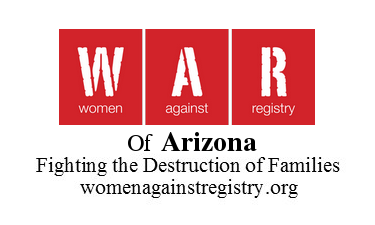-
Prescott starts new program to monitor sex offenders

Sex offenders living in the City of Prescott are now under an additional layer of supervision.
As of April 1, the Prescott Police Department has implemented a monthly verification system called the Sex Offender Accountability Program (SOAP).
This system, used to monitor all sex offenders within the city — no matter their risk assessment level, pertains to offenders who are registered, inactive, absconders and those currently incarcerated, according to a news release put out by PPD Chief Deborah Black.
The new initiative can be traced back to Black’s experience as the former police chief in Glendale, where a similar program was and still is in place.
“She’s bringing things up that she has seen successes with and wants to implement those up here,” said Dave Fuller, PPD Public Information Officer.
On Feb. 14, there were about 89 active registered sex offenders in the city. As of April 17, that number has dropped to 82, partially due to SOAP, the release said.
“Already we have contacted or located several (sex offenders) with warrants that have been arrested, and we have also found out that several are out of compliance, so we will be pursuing those through the court system,” said Deputy Chief Amy Bonney.
The program is a significant shift from what PPD was doing before.
“Previously, if there was a violation that was brought to our attention, we would certainly investigate it, but we didn’t have this level of accountability built in on a regular basis,” Bonney said.
Police departments are not required to randomly check on sex offenders, but they are at liberty to do so as often as they deem necessary.
Sex offenders already face a high degree of supervision. Checks and updates on where sex offenders are living and their online activity are done at least annually through the sheriff’s office, as required by state law. For the homeless, registration must be renewed every 90 days with a recorded description of the physical location at which they are living, whether that be an empty lot or a park bench.
Additionally, all sex offenders go through some period of probation.
“In fact, a majority of them are on lifetime probation,” said John Morris, Chief Officer of Yavapai County Adult Probation.
Of the 82 sex offenders registered in Prescott, about 51 are on probation, Fuller said.
Depending on the offender’s risk assessment level, probation officers will randomly check on registered sex offenders one or more times a month, Morris said.
“We do random field visits; home visits; where they’re employed. They’re totally under surveillance,” he said.
With this in mind, very few police departments take as hardline an approach as PPD is now doing to keeping an eye on sex offenders themselves.
Prescott Valley Police Department, for example, only recently increased their sex offender compliance checks from once a year for all levels to every six months for level 2s and 3s and once a year for level 1s.
“We feel that once a year and every six months for the higher offenders is more than adequate,” said Kevin DeNomie, a PVPD community service officer who handles much of the sex offender processing for the department. “Most of us in the country are kind of doing it the same way. This new program that they’re having over at Prescott is probably the most aggressive one.”
Pulling from memory, DeNomie can recall about three of Prescott Valley’s 76 registered sex offenders being caught out of compliance in the last nine months.
“Percentage wise, it’s a pretty small amount that aren’t complying,” he said. “And some of them recently were just smaller issues, like they messed up and missed the deadline to change their address by a couple of days.”
Failing to register as a sex offender when required to is a class 4 felony and can result in not only jail time, but also an increase in an offender’s risk assessment level.
Implementation and allocation of resources
In DeNomie’s experience, random compliance checks can be a difficult and time-consuming task.
“There’s a lot of work to it, because you have to catch them (the offenders) at the right time of the day,” DeNomie said. “It’s a hit-and-miss kind of a thing.”
It can be even more difficult when a sex offender is homeless and only has a geographical location for an address rather than a traditional house number and street.
“It can take two, three or four times before you actually have contact,” DeNomie said. “That can take up a lot of time.”
Detective Jessica Belling, who heads up criminal investigations and sex offender compliance for Prescott Police Department, doesn’t see it so.
“It really isn’t burdening patrols any to go make contact with these people,” Belling said.
As it currently stands, each police officer is assigned a number of sex offenders to check up on once a month. If a sex offender is not home at the time the officer makes a check, a door hanger is left asking the offender to give Belling a call at a provided number.
“Usually the ones within compliance call within a day,” Belling said. “The ones I never hear back from are the ones we check back with sooner than the next month.”
Local sex offender’s reaction
All registered sex offenders are well aware of how severe the consequences are for not staying within compliance, for it is clearly spelled out to them when they are convicted of the crime and are consistently reminded as they go through the regular procedures to abide by the laws set for them.
For this reason, and the aforementioned amount of supervision sex offenders are already subjected to, a level one sex offender residing in Prescott — who we will refer to as Tyler to maintain his anonymity — believes PPD’s actions are gratuitous.
“I feel like it’s just another stress factor,” said Tyler, who is on lifetime probation. “It’s another form of somebody trying to check up on me. I can’t say too much against it, because, obviously, I broke the law and I’m being punished for it, but how much punishment is enough?”
To him, it’s a waste of resources on the city’s part and comes off as hostile from the police department.
“I feel like it’s a form of harassment,” Tyler said. “There’s no reason to believe that I’ve done anything wrong as far as not being compliant or anything like that, so why are you coming and checking on me? There’s no inkling of suspicion involved, it’s just a matter of they’re going to do it because they can.”
Those at the Prescott Police Department have stated this is not at all the objective of the program.
“The contacts are not designed to be confrontational,” Bonney said. “They’re not designed to catch anybody doing anything wrong. We just want there to be an additional level of accountability with the people who are supposed to register. The safety of this community is our first priority and we believe that by knowing which offenders are in our area and by making sure they are complying with the law, we are being proactive in keeping this community safe.”
In fact, the department believes this will assist in creating a friendlier community all around.
“We get to know them (the sex offenders) and they get to know us, so it creates a better relationship with the ones who are in compliance,” Belling said.
Tyler doesn’t buy this.
“I feel it’s ultimately like ‘let’s get sex offenders out of this area by making it harder for them to live here,’” Tyler said.
Going forward
With SOAP just wrapping up its first month, Bonney said it’s going to take some time for everyone to find a rhythm with the program.
“We’ll be able to tell as time moves on how it’s working and adjust the program as we need to,” Bonney said.
For the Glendale Police Department (GPD), which has had a similar program called SOAPER in place for about a decade, the feedback from the community has been positive, according to GPD spokesperson Sergeant Scott Waite.
“I think there’s been a positive response on all ends,” Waite said.
As for the program’s effectiveness in ensuring the community’s safety, Waite doesn’t have concrete figures to present.
“As far as reduction in crime, it’s hard to say,” Waite said. “I believe it has. I think the [sex offenders] who have bad intentions don’t want to stick around in our city, and it maybe scares ones that are on the fringe by making them think ‘I need to stay on the straight and narrow.’”
https://www.dcourier.com/news/2017/apr/30/prescott-police-start-new-program-monitoring-those/
Mindlessly Punitive Federal Sentencing Guidelines Long Island Foster Father Found Not Guilty of Abusing Boys
Prescott starts new program to monitor sex offenders
Arizona MVD a Bit Unusual
Make sure you know current requirements. You can go to your Sheriff's Office website to see if there is new information there. If so, we suggest you do a screen print and save it. Call your registry office to get clarification on any questions you might have. Document the date, time, who you spoke with and their instructions regarding any address change, vehicle, employment, travel dates if required, etc.
Keep in mind if you are required to update your drivers license annually through the Department of Motor Vehicles (DMV) you should contact them for their status.
Be safe, be smart, stay healthy and know we will get through this.Stay Updated with Arizona W.A.R.
All information is confidential and we do not distribute any data whatsoever.
The W.A.R. Support Line:
Links to and From WAR
WAR


